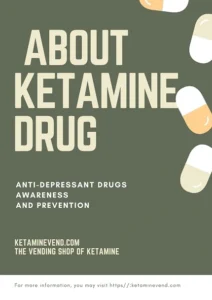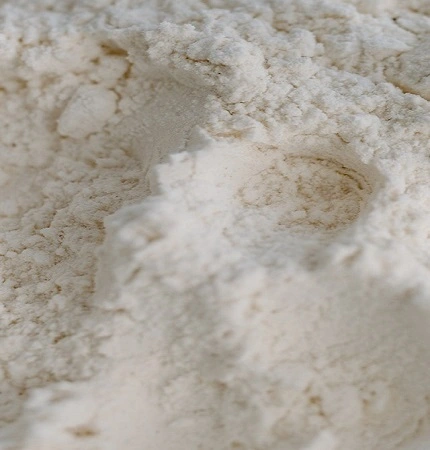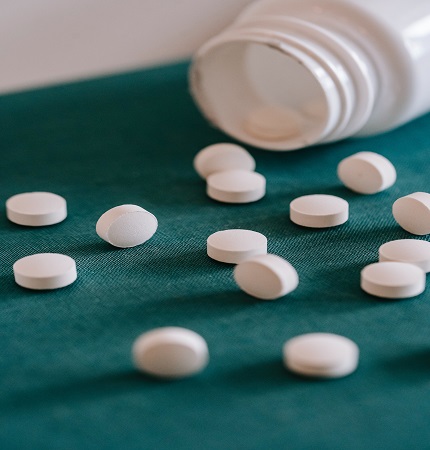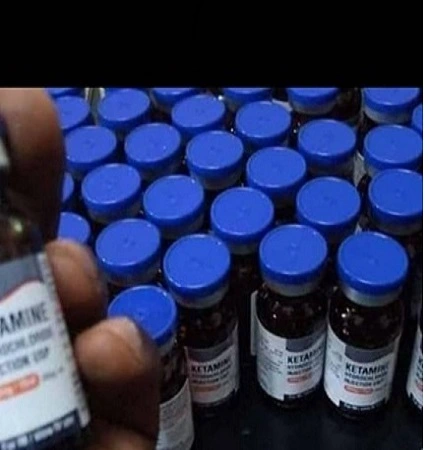KETAMINE THERAPY
Ketamine therapy can be in the form of a powder or liquid. This Ketamine therapy in the powder form can be dissolved back into liquid and taken intravenously. However, ketamine therapy is approved for use at high doses as an anesthetic in the operating room. Lower dose “sub-anesthetic” ketamine injections are used “off-label” to treat depression, pain, and other mental health/substance use disorders.

In recent times, there have been many factors contributing to increased depression across wide populations. There are several medications available for depression, anxiety, and substance use disorders which involve daily administration of a medication aimed at correction of neurochemical imbalances via action at specific brain receptors (e.g. serotonin, dopamine, mu opioid).
What ketamine therapy
In contrast, using a psychedelic-assisted therapy model with ketamine produces a short-lived but intense subjective experience the mystical or peak experience which triggers or elicits an afterglow, accompanied by a subsequent positive change in affect, insight, motivation, cognition, and behavior.
The potential for mystical experiences to produce rapid, profound, and sustained changes in insight, mood, behavior, and consciousness was recognized and first used by indigenous cultures in shamanic and other healing rituals. Psychedelic-assisted therapies for treating behavioral health disorders was studied extensively and safely in approximately 40,000 patients in North America in the 1950’s and 1960’s.
Ketamine to reset pain receptors
Patients with depression, anxiety, PTSD, end-of-life distress, chronic pain, drug/alcohol problems, and other conditions may be eligible for psychedelic-assisted therapy with ketamine.
Usually ketamine treatment includes one or a few in-clinic ketamine dosing sessions under clinician supervision integrated with preparatory and integration counseling.

By harnessing the potential psychedelic effects of ketamine, the aim is to achieve more sustained results with fewer ketamine treatments compared to IV ketamine infusions without accompanying psychotherapy.
Consider tackling and shedding some difficult issues and making a fresh start wherever you are in your life.
When ketamine therapy goes wrong
Ketamine remains a fairly new player on the field of depression treatment. Here’s a quick snapshot of its history: Healthcare professionals first began using ketamine as an anesthetic in the 1960sTrusted Source. Before long, they noticed it didn’t just cause a sedative effect. Some people also reported improvements in their mood after receiving ketamine, says Kyle Keller, LICSW, a CIIS-certified psychedelic-assisted psychotherapist in Minnesota and founder of Intero Psychedelic Therapy.
During the 2000sTrusted Source, medical professionals began researching ketamine as a possible treatment for depression, according to Hans Eriksson, a clinical psychiatrist and chief medical officer at HMNC Brain Health.
ketamine with suboxone
In 2019Trusted Source, the Food and Drug Administration (FDA) approved the use of an esketamine nasal spray called Spravato for treatment-resistant depression. Esketamine is a more potent form of ketamine, so doctors can prescribe it at lower doses that have a similar effect.
Treatment-resistant depression refers to depression symptoms that don’t respond to two or more types of antidepressant medication. Estimates suggest up to 30% of people Trusted Source with major depression have treatment-resistant depression.
Antidepressants aren’t the only treatment option for depression symptoms, of course. You may have also tried:
These approaches don’t always relieve severe depression symptoms, including thoughts of suicide and that’s where ketamine could make a difference.
Below, get the details on the potential benefits and risks of trying ketamine for treatment-resistant depression, plus guidance on getting a prescription from a qualified mental health professional.
Why Ketamine Therapy
Ketamine works by binding to receptors in the brain Trusted Source that produce a chemical called glutamate, explains Faisal Tai, a board certified psychiatrist and medical director of geriatric psychiatry at HCA Houston Healthcare Tomball. In other words, it helps activate glutamate in your brain.
While experts have yet to determine Trusted Source glutamate’s exact role in depression symptoms, they do know Trusted Source it plays a key role in mood regulation. Low levels of glutamate in your brain may lead to depression symptoms.
Ketamine can also stimulate the production of brain derived neurotrophic factor Trusted Source, Eriksson says. This protein plays a role in neuroplasticity, or your brain’s ability to adapt as you experience new things. By supporting neuroplasticity, ketamine may help change negative thought patterns that contribute to depression.
Another major advantage lies in the fact that ketamine works very quickly, Eriksson says. With traditional antidepressants, it may take weeks before you notice improvement in your symptoms. Ketamine may offer relief in as little as 1 hour Trusted Source. Ketamine may also help treat:
Ketamine is most similar to which drug
Ketamine comes in many different forms, including:
- Nasal spray: You can use Spravato nasal spray once or twice a week for up to 4 weeks Trusted Source. After 4 weeks, your care team will typically study your symptoms before recommending further treatment.
- Intravenous (IV) therapy: A slow, continual IV drip delivers ketamine directly into your bloodstream.
- Intramuscular (IM) injections: You may receive shots of ketamine into a large muscle, such as your shoulder or thigh.
- Lozenges: You may receive a prescription for oral ketamine tablets, which dissolve slowly under your tongue, to take at home. You can take these tablets between IV or IM treatments, or on their own. It may take longer to notice an effect, since your digestive system has to process the ketamine first.
You can only receive esketamine nasal spray, IV therapy, and IM injections at a clinic or hospital. This allows healthcare professionals to monitor your response and any side effects you experience.
According to Eriksson, IV therapy is one of the most widely studied forms of ketamine in part because the treatment professional has more control over the dosage during treatment. However, Spravato nasal spray remains the only FDA-approved ketamine therapy, to date.
Ketamine vs pcp
A growing body of research supports the benefits of ketamine for depression.
In a small 2019 studyTrusted Source, men with severe depression who received six ketamine injections over 2 weeks experienced a significant improvement in depression. This effect set in just 1 hour after their first dose and lasted as long as 1 month after their last dose.
In a 2020 study Trusted Source, participants with treatment-resistant depression received either six ketamine infusions or five placebo infusions followed by one ketamine infusion over a 12 day period. Those who received only ketamine doses experienced greater improvements in their depression but when the placebo group received their dose of ketamine, they reported a similar level of improvement.
Future research may help determine whether repeated ketamine treatments have more of an effect than a single dose. In a 2022 study, people with depression and thoughts of suicide received six IV ketamine infusions at three separate clinics over 21 days. Within 6 weeks of starting treatment, 20% of people with depression were considered “in remission,” meaning their depression symptoms had greatly improved, and 50% of people who had thoughts of suicide no longer experienced them.
How ketamine therapy works
Side effects of ketamine therapy tend to be fairly mild. According to a 2021 review Trusted Source, the most common side effects include:
- drowsiness
- dysgeusia, or altered sense of taste
- psychosis, which may include hallucinations and delusions
- nausea
- dizziness
- headaches
- dissociation, or feeling disconnected from your body, thoughts, and feelings
- vertigo, or the feeling of spinning and losing your balance when you’re not moving
In rare cases, ketamine can cause adverse events Trusted Source, such as:
- Panic attacks
- Mania
- Ataxia, or poor muscle control or coordination
- Akathisia, or difficulty sitting still
- thoughts of self-harm
- Autoscopy, or out-of-body experiences
Evidence Trusted Source also suggests ketamine may worsen depression in some people. Long-term ketamine use has been linked to bladder dysfunction and memory loss Trusted Source.
Ketamine and depression
Since ketamine can increase blood pressure, it’s not recommended for people with hypertension, Eriksson says. Keller advises avoiding ketamine treatment if you or your family has a history of psychosis. Ketamine can cause disassociation, which experts have linked Trusted Source to hallucinations and other symptoms of psychosis.
You may also want to ask your healthcare professional about whether or not it’s safe to take ketamine if you have:
- heart disease
- a history of increased intracranial pressure
- a history of substance use disorder
Ketamine and seizures
Talk with mental health care professional or primary care doctor if you’re interested in trying ketamine for depression, says Yalda Safai, MD, a New York-based psychiatrist at Pasithea Clinics. They can help you decide if ketamine is right for you and refer you to a professional who specializes in ketamine therapy.
You can find freestanding clinics and online services that offer ketamine, but Safai cautions that many of them don’t offer adequate supervision.
“This is dangerous, as it’s important to be monitored for side effects by a nurse or doctor during the treatment,” she says.
Again, oral ketamine tablets are the only form of ketamine you can take at home. Your prescribing clinician will likely recommend having a friend, partner, or other trusted person present when you take them, just in case you experience any uncomfortable side effects or a negative reaction.
If you do try a ketamine clinic on your own, the American Society of Ketamine Physicians, Psychotherapists, and Practitioners recommends making sure it meets the following criteria:
- It’s been open for more than 2 years.
- It has board-certified physicians with mental health experience on staff.
- It offers additional mental health support services, such as individual or group therapy.
- You’re required to complete at least one or two consultations before starting ketamine therapy.
How Much Does Ketamine Cost
Since the Spravato nasal spray is the only FDA approved treatment at this time, insurance companies often won’t cover other forms though they may cover other types of ketamine treatment in cases of very severe depression, according to Lagoy.
The cost of other types of ketamine therapy can vary, depending on where you live, what form and dose you take, and other factors.
- liquid ketamine ( infusion) = $25
- ketamine tablet = $42
- ketamine nasal spray = $100
- ketamine powder (1mg) = $40
- ketamine powder ( 1kg and above) = $15,000/kg
- testosterone enanthate = $28
- testosterone cypionate = $25
The Bottom Line Of Ketamine
Ketamine continues to gather interest as a potential treatment for depression, especially treatment resistant depression.
That said, research on the benefits of ketamine for depression remains relatively new. Experts emphasize Trusted Source the need to continue exploring its long-term safety and effectiveness.








Mcbrown –
GOT THE PACKAGE. THE QUALITY IS UNBEATABLE. YOU ALWAYS KEEP TO YOUR WORD. GETTING 20KG NEXT WEEK…..